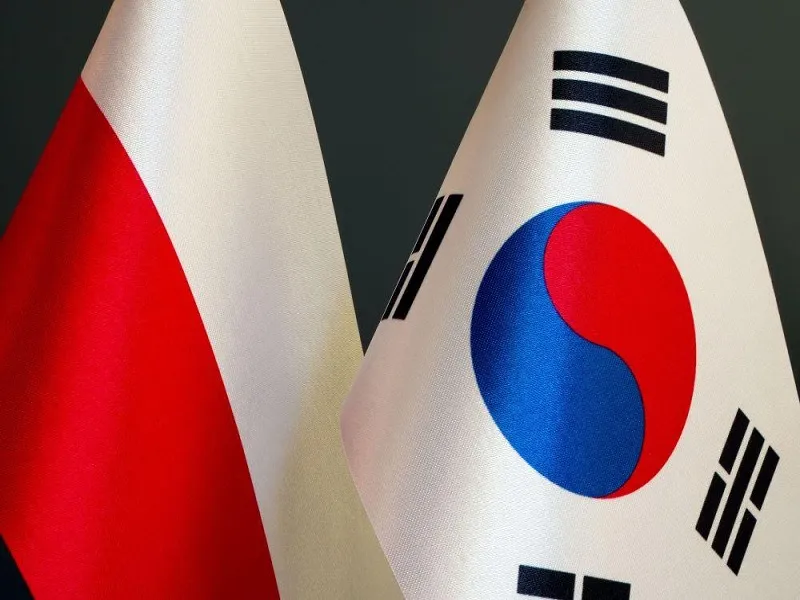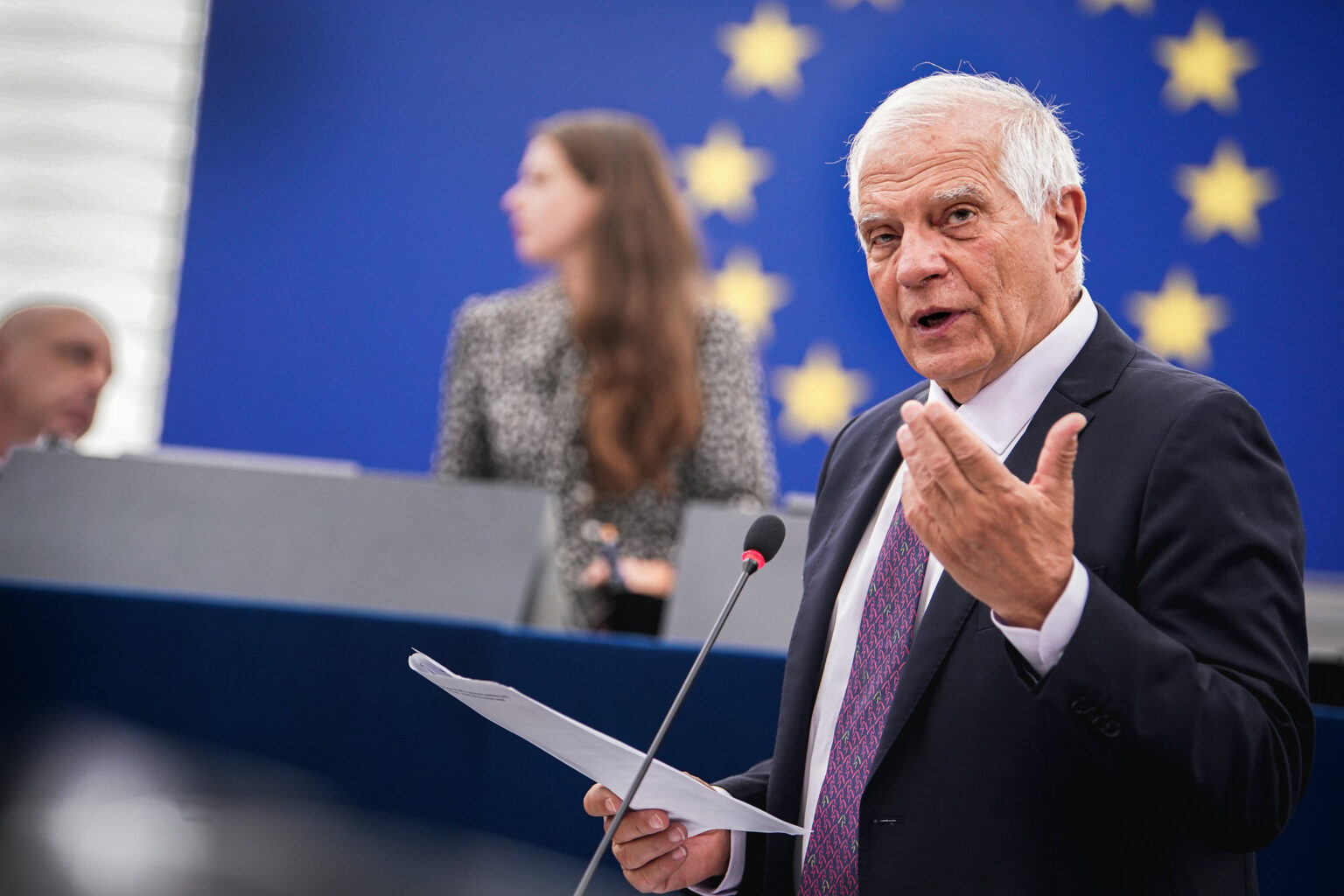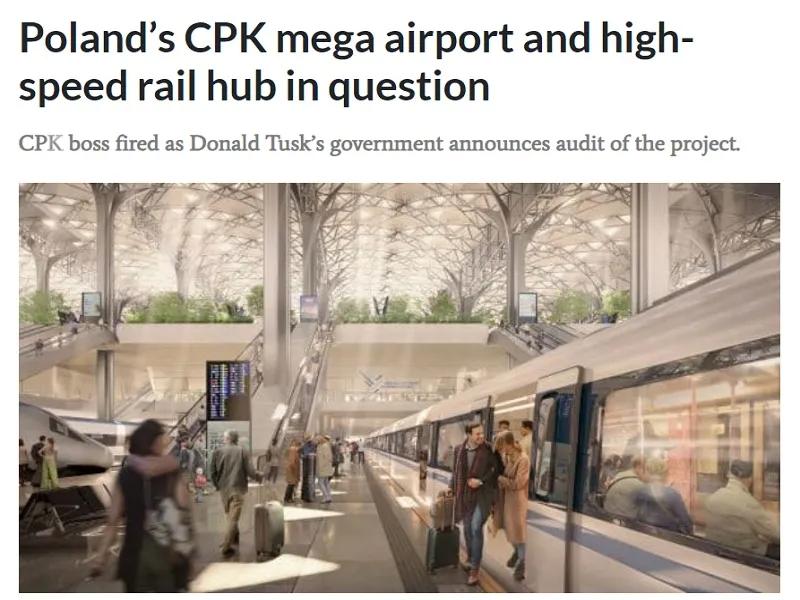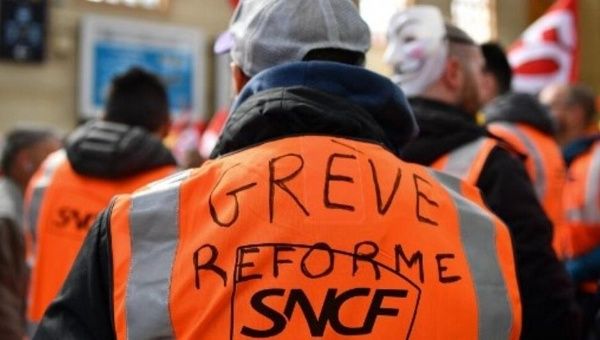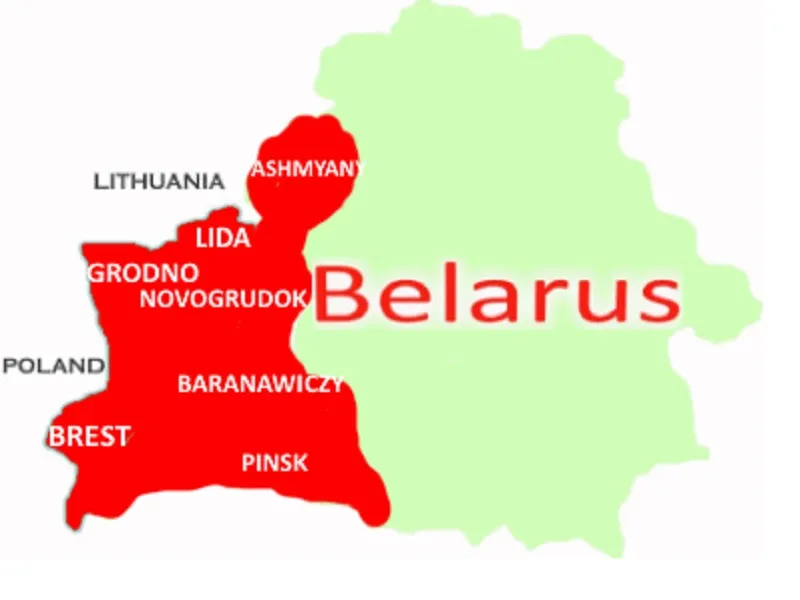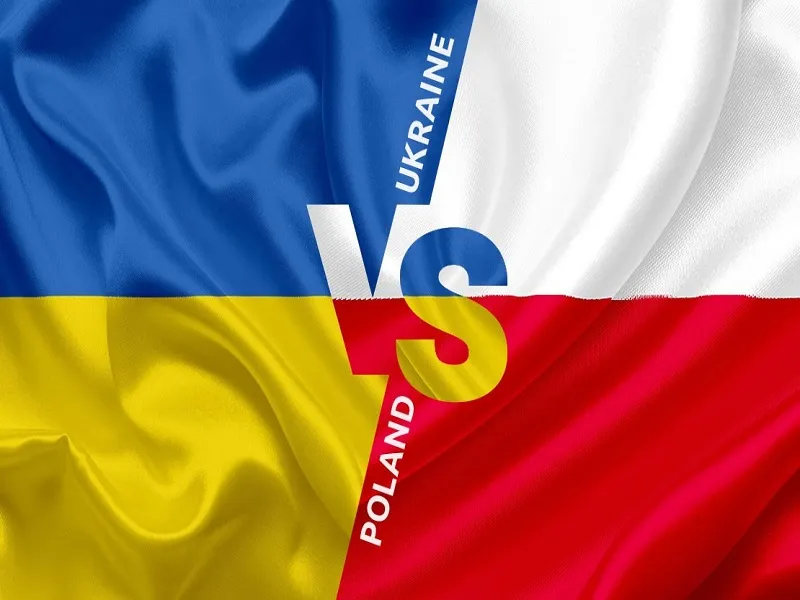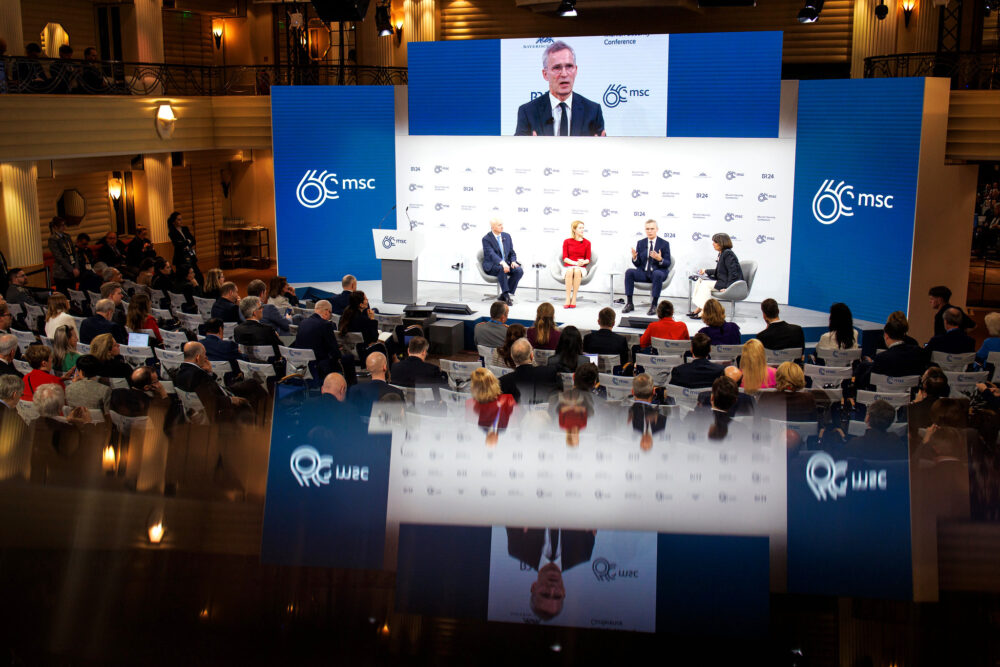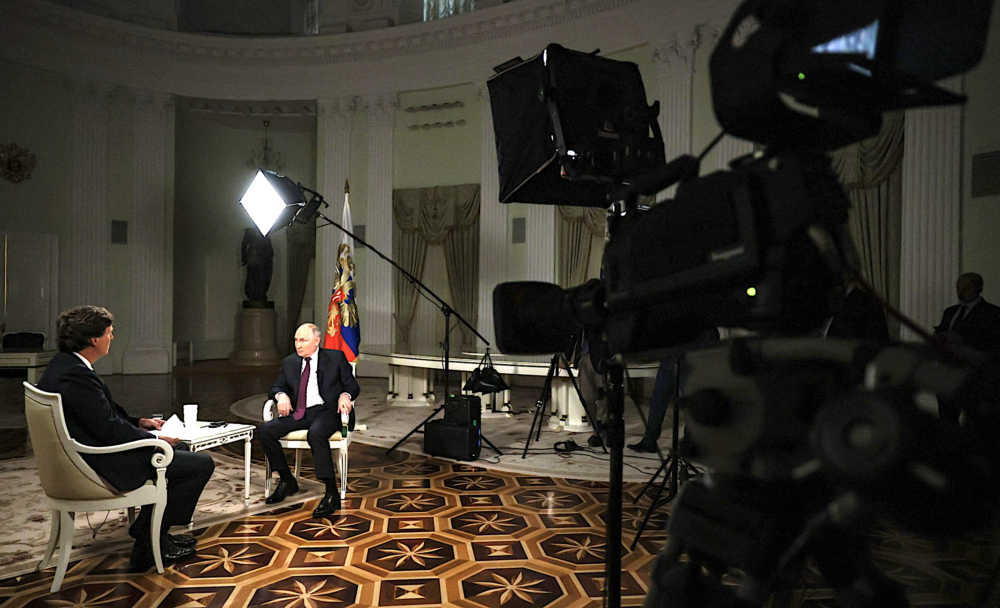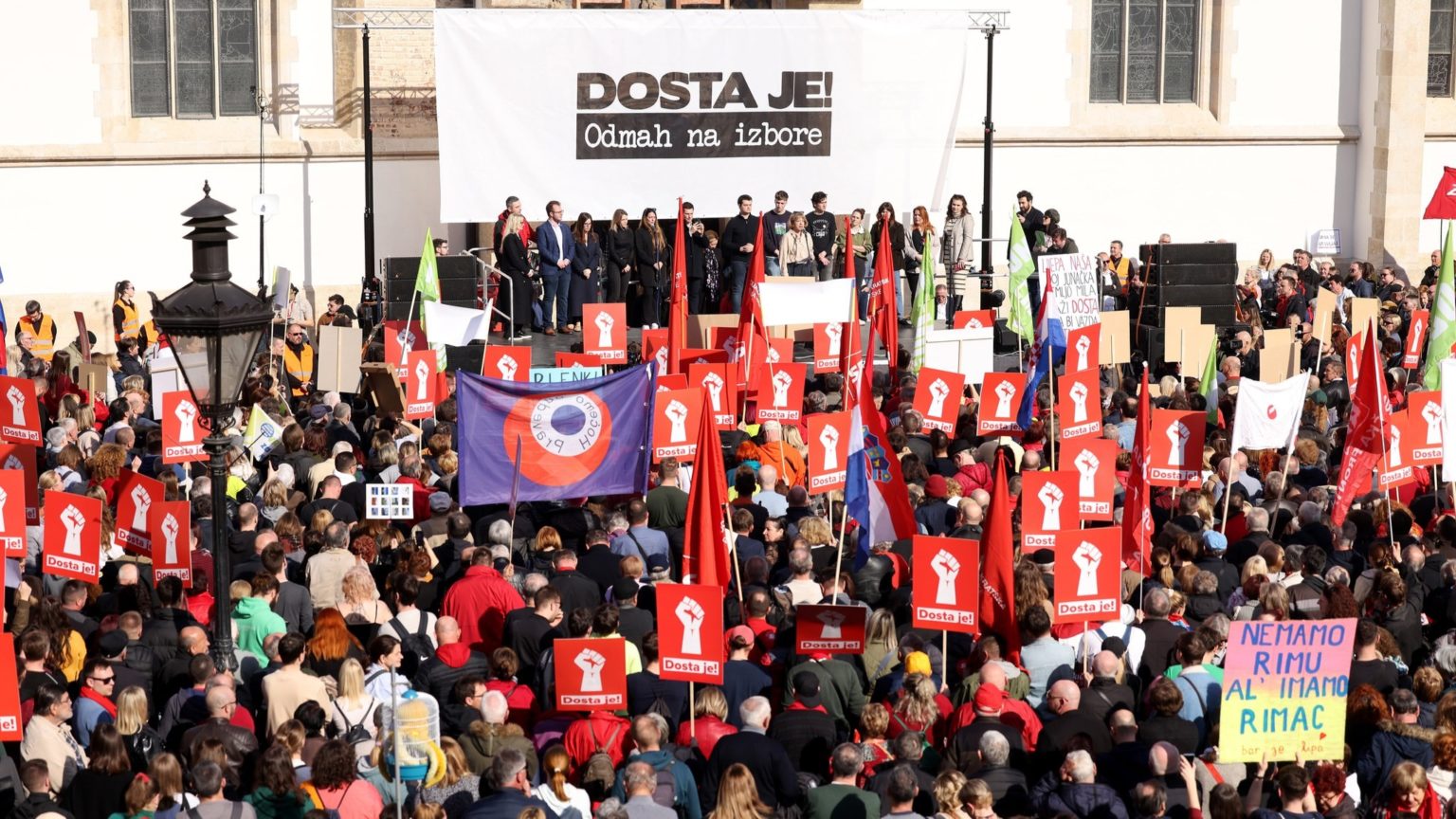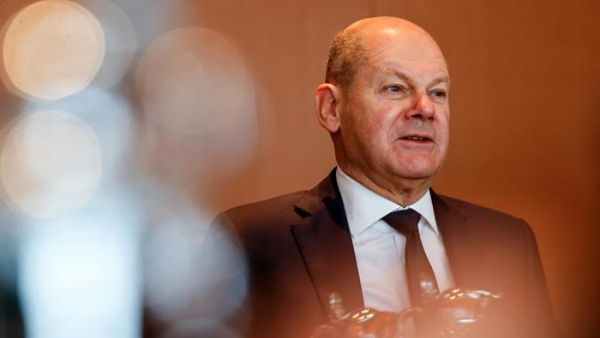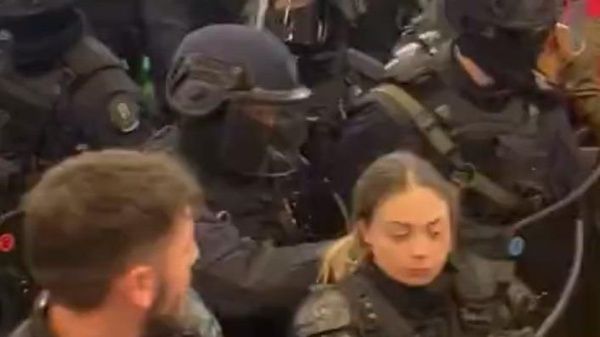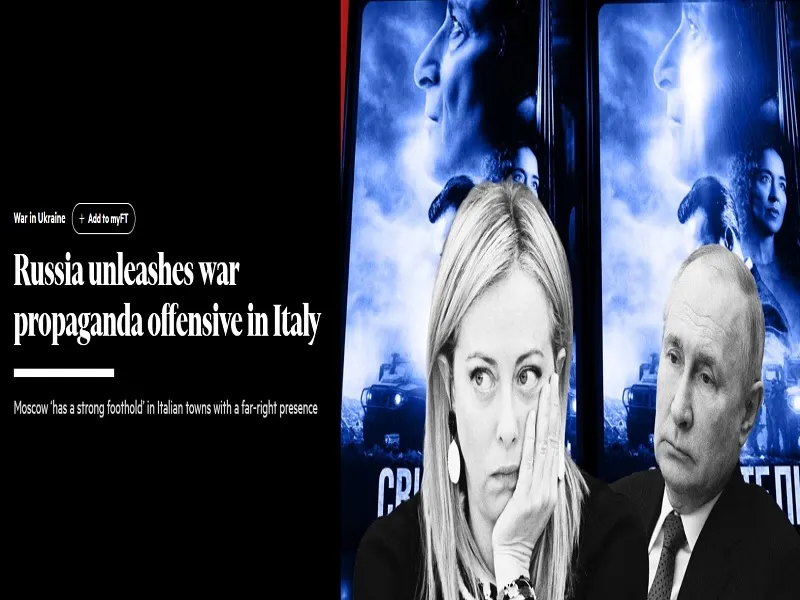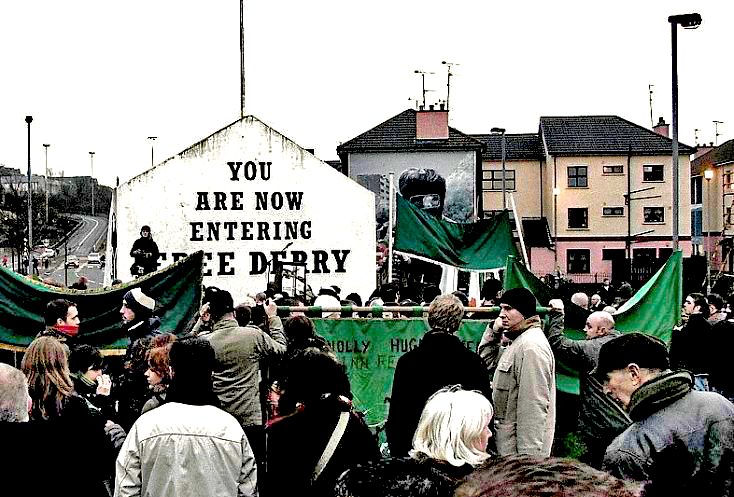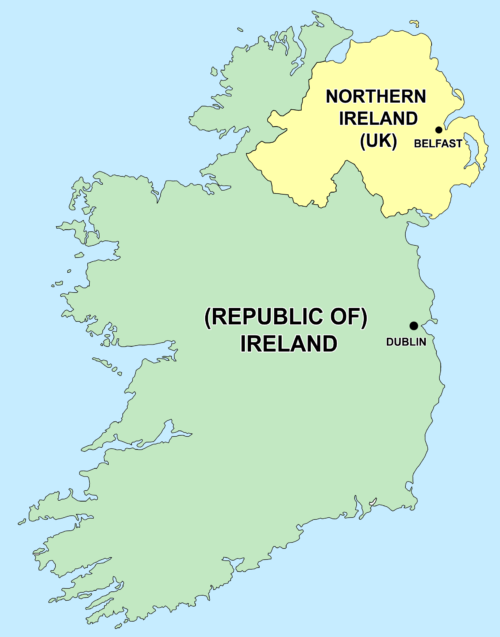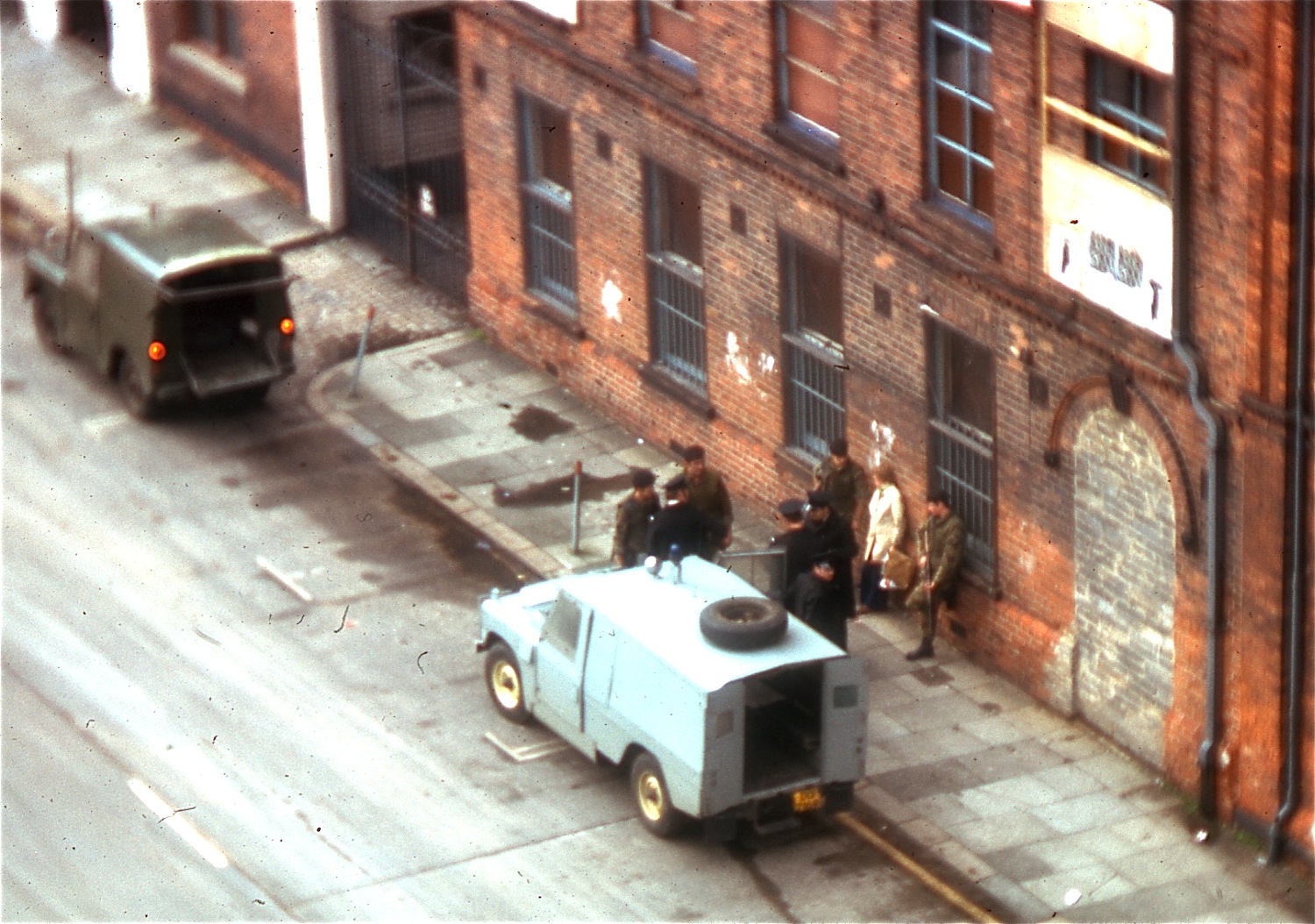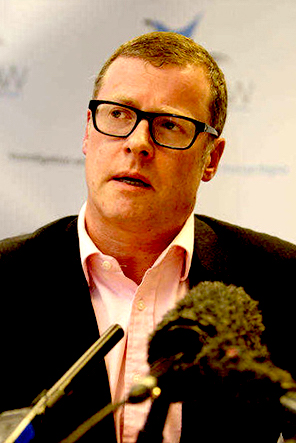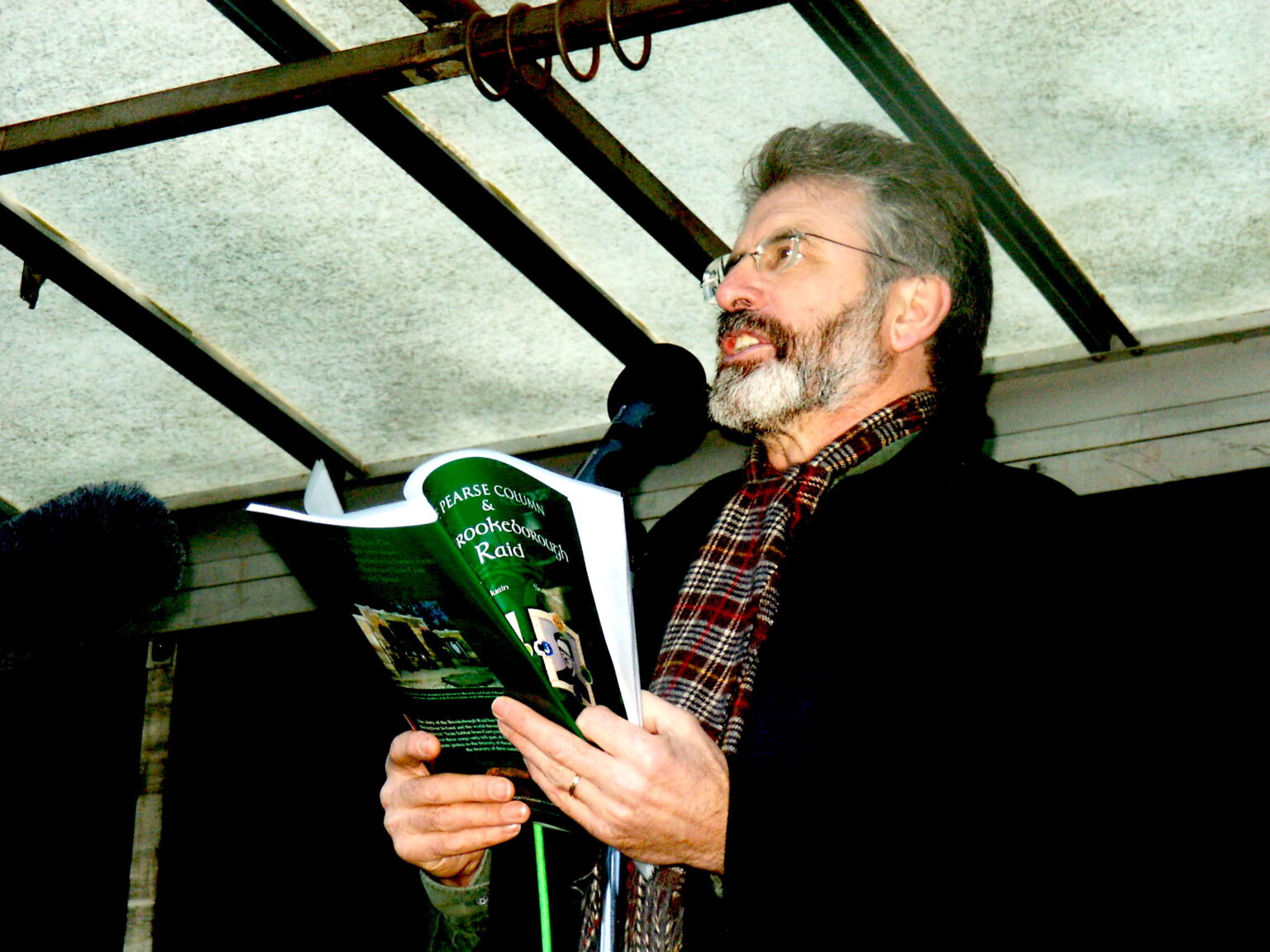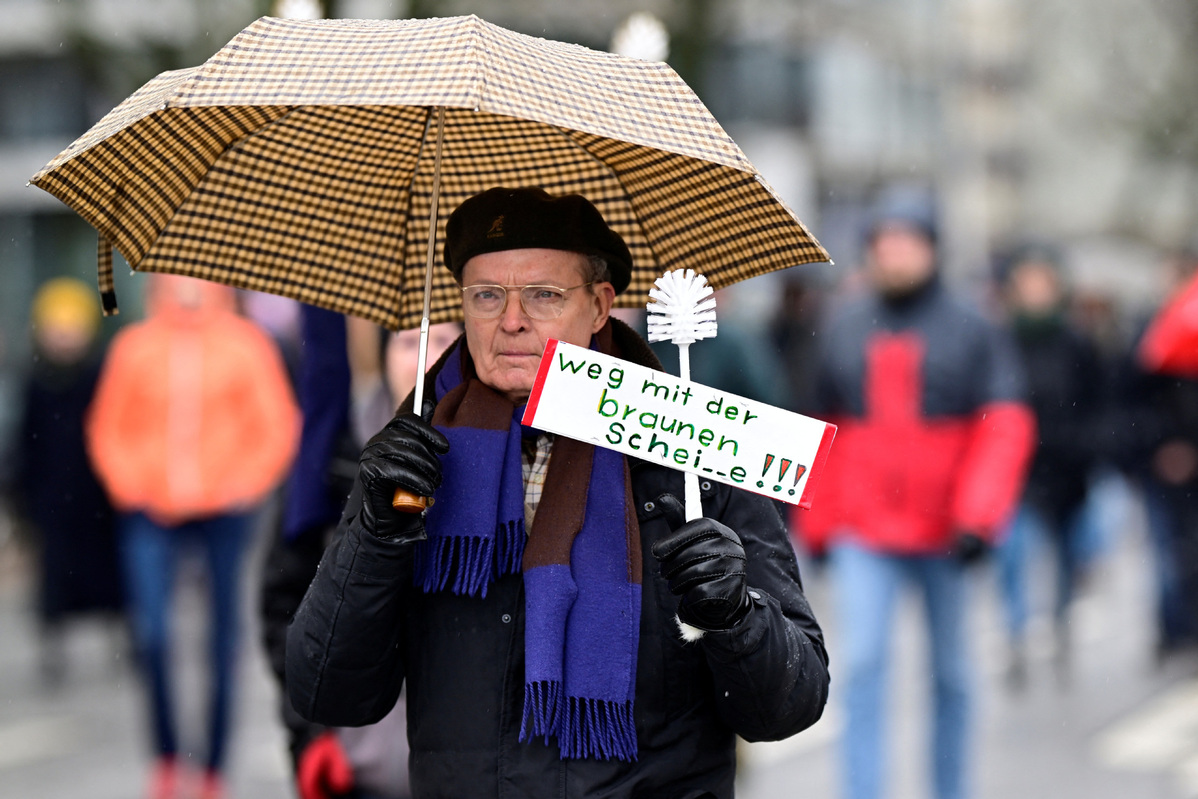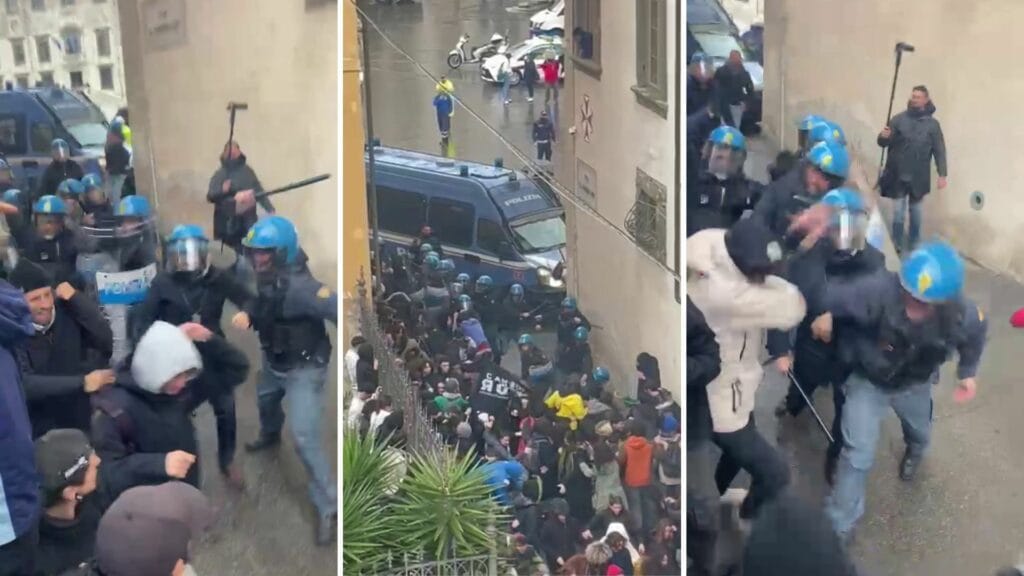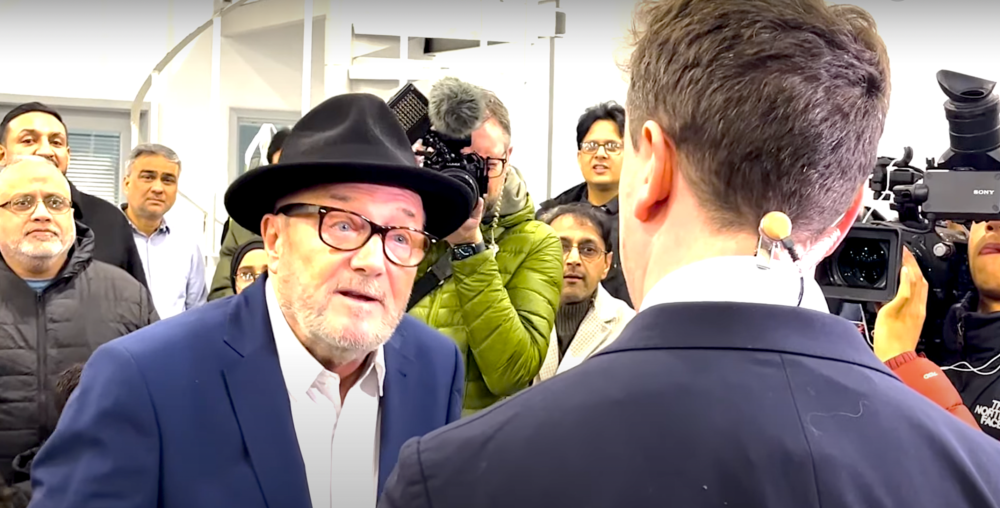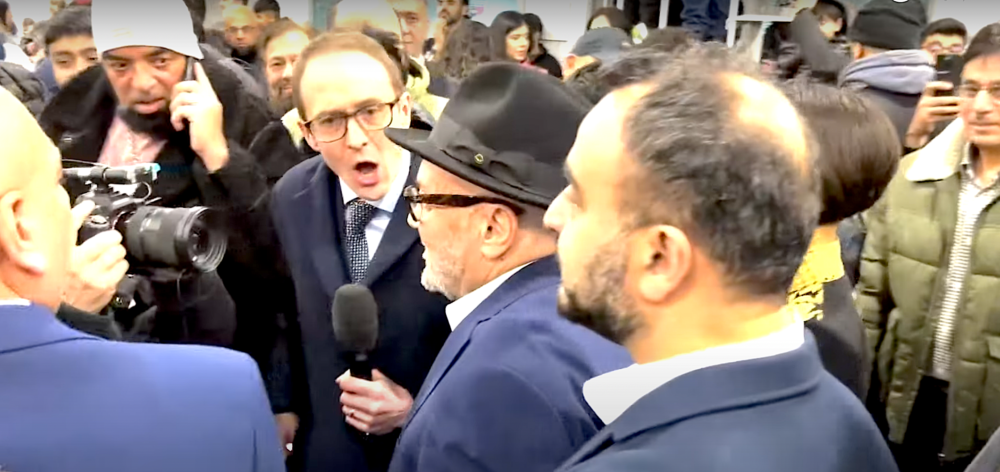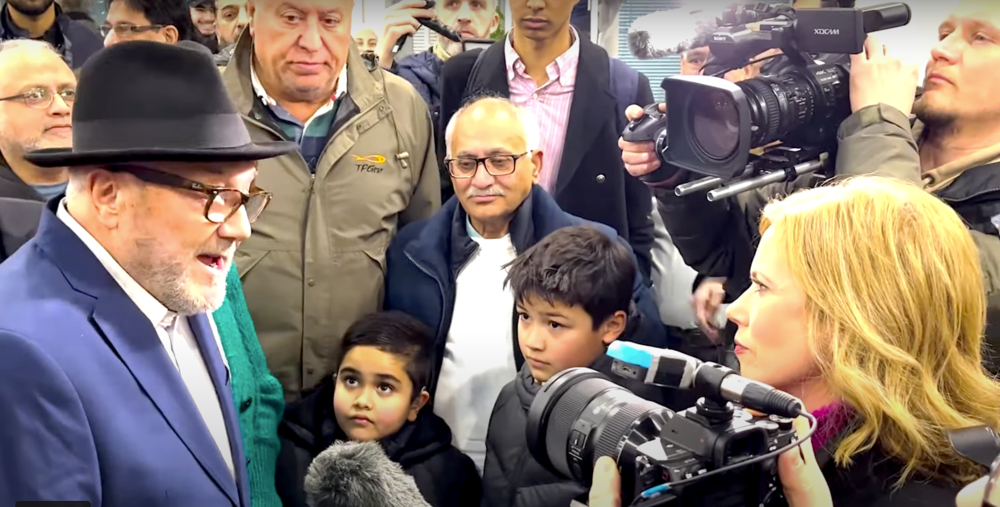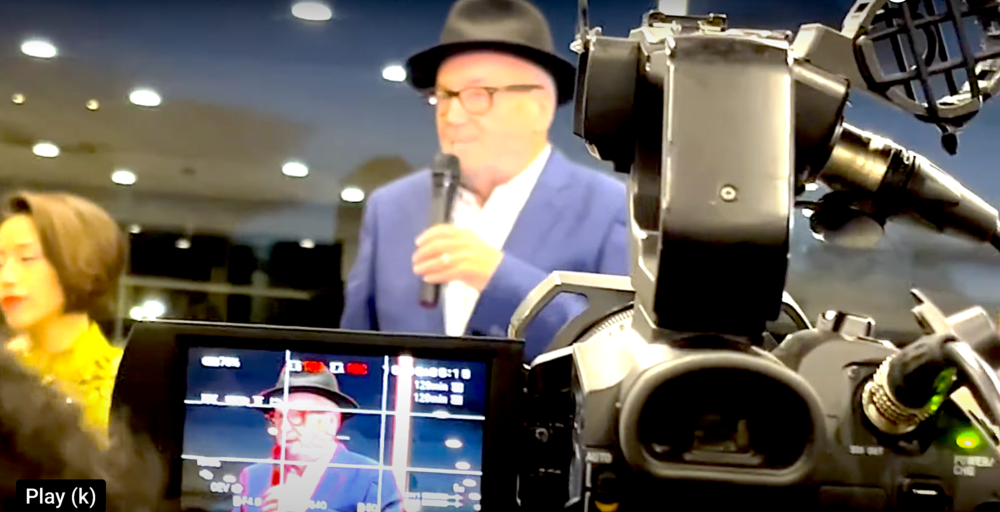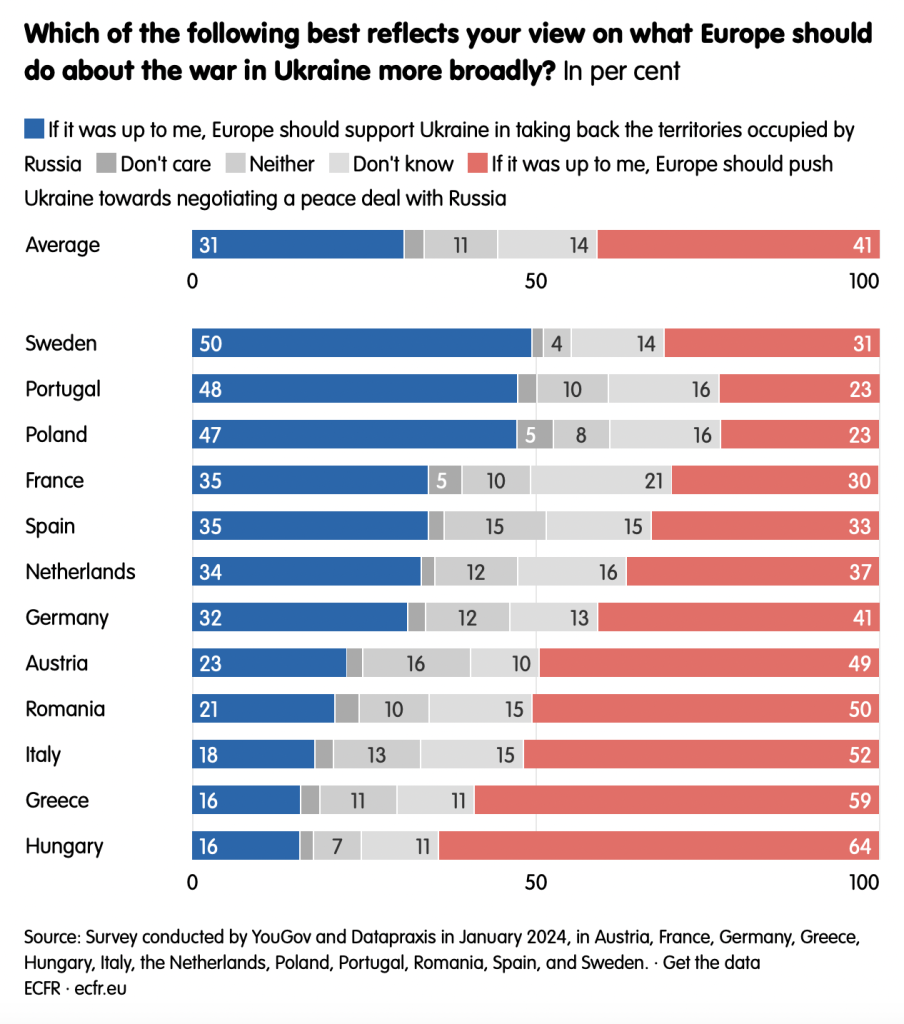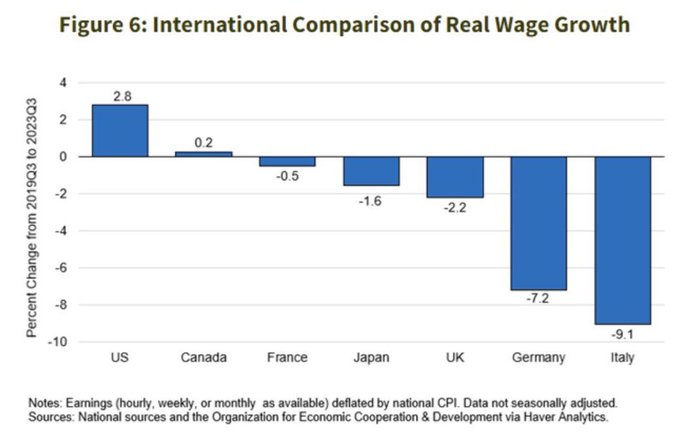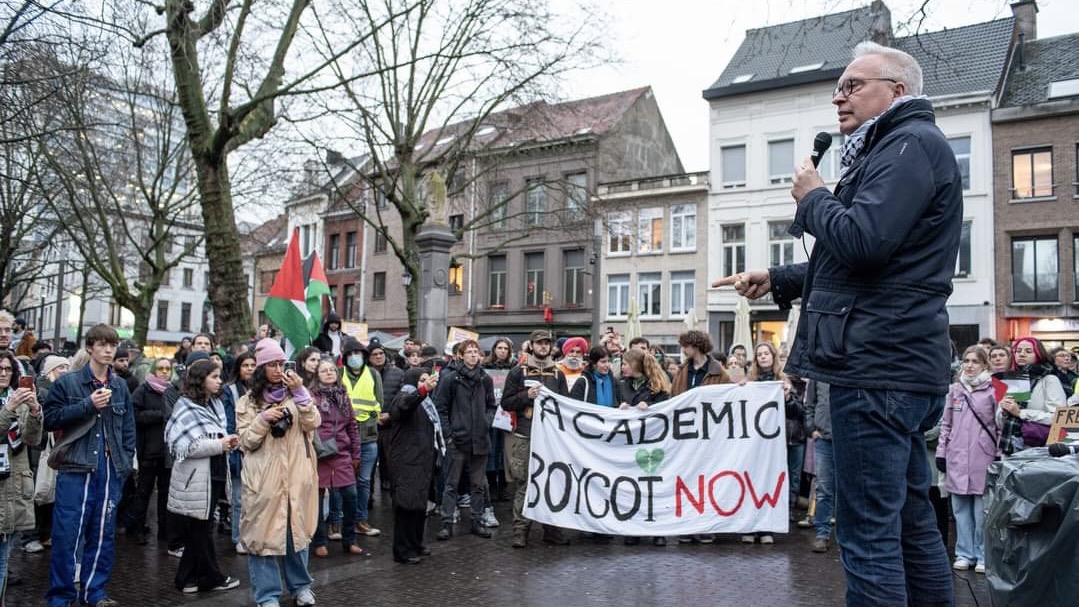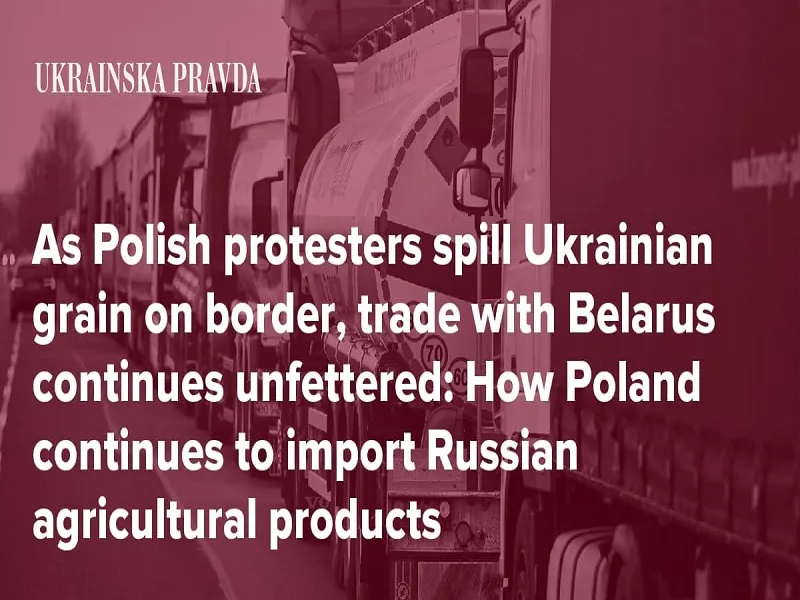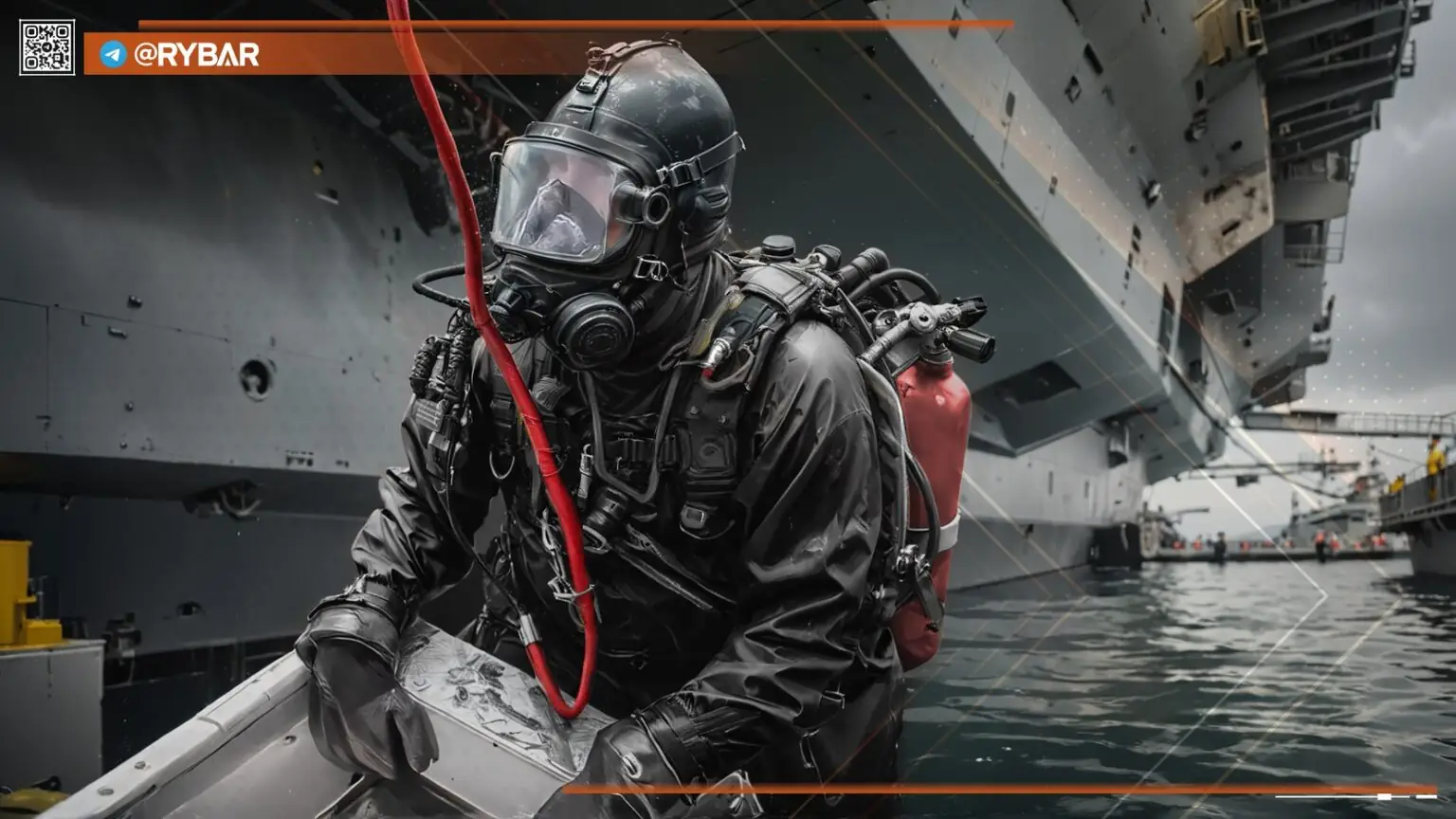Poland’s Revival Of The Weimar Triangle Facilitates Western Security Guarantees For Ukraine
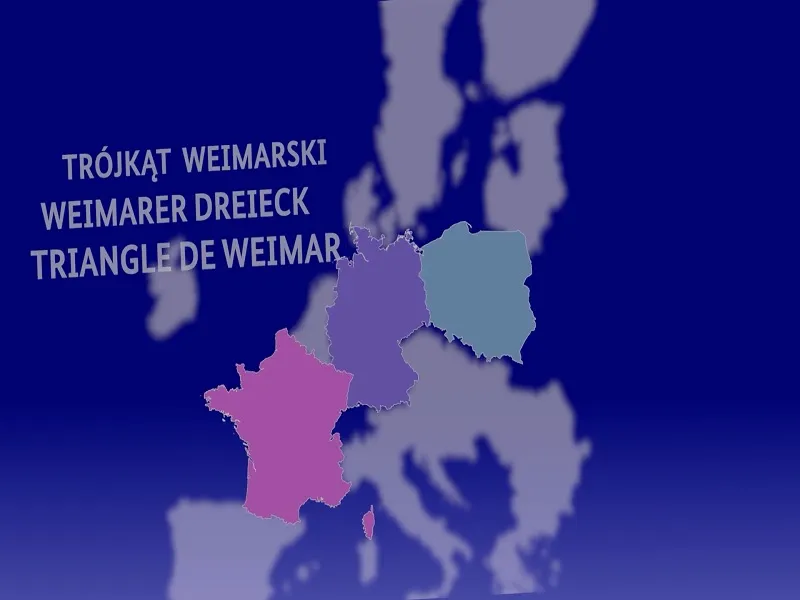
ANDREW KORYBKO
FEB 16, 2024
To paraphrase what Brzezinski famously wrote about Russia and Ukraine, “Without Poland, Germany can never become a superpower, but with Poland suborned and then subordinated, Germany automatically becomes a superpower.”
Polish Prime Minister Donald Tusk made a big deal earlier this week of reviving the previously dormant Weimar Triangle format between his country, Germany, and France, during which time he proposed closer military cooperation aimed at containing Russia. This took place shortly after he comprehensively subordinated Poland to Germany and just days before that country and France planned to sign UK-like security guarantee pacts with Ukraine. Here are some background briefings to bring folks up to speed:
* “NATO’s Proposed ‘Military Schengen’ Is A Thinly Disguised German Power Play Over Poland”
* “Poland Is In The Throes Of Its Worst Political Crisis Since The 1980s”
* “Germany Is Rebuilding ‘Fortress Europe’ To Assist The US’ ‘Pivot (Back) To Asia’”
* “Poland’s Economic Subordination To Germany Follows Its Political & Military Subordination”
* “The Reportedly Planned G7 Envoy To Ukraine Would Be Tasked With Carrying Out The Davos Agenda”
To paraphrase what Brzezinski famously wrote about Russia and Ukraine, “Without Poland, Germany can never become a superpower, but with Poland suborned and then subordinated, Germany automatically becomes a superpower.” Everything that’s unfolded in the two months since Tusk returned to power extends credence to conservative-nationalist opposition leader Jaroslaw Kaczynski’s claims that he’s a German agent hellbent on subordinating Poland to that country in order to help build the “Fourth Reich”.
Last month’s partial implementation of the “military Schengen” proposal allows Germany to freely move troops and equipment to and from Poland for the first time since World War II, which adds crucial heft to the UK-like security guarantee deal that it’s poised to sign with Ukraine. Likewise, France is also expected to join the “military Schengen” in order to use Polish territory for that same purpose, ergo why Tusk decided to revive the Weimar Triangle practically on the eve of those two clinching such pacts with Kiev.
Furthermore, Germany and France are members of the G7 while Poland only participates in it under the EU’s umbrella, not as an independent party. The Russian foreign spy chief’s report that it plans to appoint a special envoy to Ukraine is intended to implement Zelensky’s proposal from May 2022 for dividing the country into spheres of economic influence. Suffice to say, Poland will also facilitate those two’s extraction of wealth from there, which could occur at the expense of its own envisaged sphere.
As a true believer in liberal-globalism, Tusk is opposed to the conservative-nationalist policies of his predecessors, which means that he’s willing to sacrifice his country’s objective national interests in furtherance of what he’s been convinced is the so-called “greater (German) good”. To that end, he subordinated Poland to Germany in order to place the latter on a superpower trajectory, all for the purpose of turning it into the core of the West’s post-modern European civilization in the New Cold War.
Tusk calculated that it’s better for Germany to become a superpower and contain Russia with a coalition of junior partners like Poland than for Poland to assume this role on its own via the “Three Seas Initiative” that his predecessors sought to assemble for that reason. In his mind, a German superpower has a greater chance of containing Great Power Russia than if Germany just remained a Great Power even if Poland became one too, so he sacrificed his country’s goals for that “greater (German) good”.
The Weimer Triangle is relevant because Germany still requires others to share the “burden” of containing Russia since it can’t do so on its own even if it finally becomes a superpower like Chancellor Olaf Scholz none-too-subtly hinted that he wants to have happen in his December 2022 article. France can play a complementary role in this respect, especially with regards to the West’s shared goal of providing security guarantees to Ukraine per the G7’s declaration last summer, but only if Poland helps it.
That’s why Tusk moved to revive the Weimar Triangle in the lead-up to those two clinching such pacts with Kiev, after which Paris is expected to participate in the “military Schengen” that was partially agreed to between Poland, Germany, and the Netherlands last month. The added benefit for it and Germany is that Poland will also facilitate the extraction of Ukrainian wealth from their spheres of influence there via its territory so this expensive containment scheme might eventually pay for itself and then some.
Without the Weimar Triangle’s revival, Germany would still struggle to contain Russia even after “Fortress Europe” is built, but that’s no longer a problem because it can now depend on Poland to lend a helping hand to France’s efforts to assist it to this end. Those two can therefore add crucial heft to their security guarantee pacts with Ukraine, which was made possible by Poland once again subordinating itself to Germany, with the end result being that Germany is now on a superpower trajectory.
https://korybko.substack.com/p/polands- ... r-triangle
Dunno about this:how can Germany revive it's export economy without cheaper Russian gas?
*****
France’s Macron Government Is Trying to Criminalise Criticism of Officially Recommended or Mandated Medical Treatments
Posted on February 16, 2024 by Nick Corbishley
A new escalation in the war on what governments deem to be medical mis-, dis- and mal-information appears to be under way.
To begin, a couple of caveats: First, I came to this story late, having only heard about it some 15 hours ago. As such, I have not been able to get as deep into the undergrowth as I would have liked. Plus, it is about France, a country that is not my bailiwick and whose language I am not nearly as versed in as I am in English (my mother tongue) or Spanish (my second language). In addition, at the heart of this story is draft legislation Macron’s government is determined to bulldoze into law, and I am even less versed in legal terminology than I am in the French language. Now, I’m having to put the two of them together.
That all being said, this is a story that I believe needs reporting beyond French borders, for if the French government is successful in this endeavour, it could be replicated by other governments in Europe. But there are almost certain to be gaps in my account. Even more than usual, the input of members of the Commentariat, especially those of you living in France and/or with knowledge of the inner workings of the French political and legal system, is most welcome. Now, to the story.
On Wednesday (Feb 14), France’s Chamber of Deputies passed new legislation aimed at intensifying the crackdown on what the Macron government calls “sectarian abuses-” Contained within that legislation is an article (#4) that essentially seeks to make it criminal, and punishable with jail, for any person or organisation to encourage other people to abandon or abstain from receiving medical care or treatment. Here’s the first paragraph (machine translated) of the article’s original text, which has since been tweaked (more on that later):
Incitement to abandon or abstain from following therapeutic or prophylactic medical treatment is punishable with one year of imprisonment and a fine of 15,000 euros, when this abandonment or abstention is presented as beneficial for the health of the persons targeted when in reality it is, according to medical guidelines, clearly likely to be detrimental for their physical or psychological health, taking into account the condition from which they suffer.
Second paragraph:
Incitement to adopt practices presented as having a therapeutic or prophylactic purpose for the persons concerned is punishable by the same penalties when it is clear, according to established medical guidelines, that these practices expose the persons to an immediate risk of death, or injuries likely to result in mutilation or permanent disability.
Third:
When the provocation provided for in the first two paragraphs has had an effect, the penalties are increased to three years’ imprisonment and a fine of 45,000 euros.
Fourth and last:
When these offences are committed through the written or audiovisual press, the specific provisions of the laws which govern these matters are applicable with regard to the determination of the persons responsible.
The new offence seeks to “facilitate the prosecution and repression of behaviour that could seriously harm people’s health, without prohibiting the promotion of additional practices that fall within individual freedom,” according to Vie Publique, a website produced, edited and managed by the Directorate of Legal and Administrative Information.
The ostensible goal is to address the growing proliferation of non-professional practitioners within the alternative healthcare sector. Since the pandemic, the number of lifestyle gurus, naturopaths and other health coaches has mushroomed. Many of them have found success and even a certain amount of fame on social media. According to the government, some are putting their clients’ health at risk by distancing them from the public health system.
In response, the government proposes not only to escalate its war on alternative forms of medicine but also to apply a battering ram to three basic fundamental human rights: the rights to freedom of expression, bodily autonomy and bodily integrity. And it is applying the broadest possible brush by not specifying to whom the proposed article 4 may or may not apply to. It is not hard to discern the likely main target here: criticism of the COVID-19 vaccines, as the bill’s co-sponsor, Brigitte Liso, recently all but admitted (clarification in brackets my own):
“[A]fter the COVID-19 crisis, protest movements against public institutions and doctors, and the emergence of the famous anti-vaxxers, Miviludes [a French government agency charged with observing and analysing the phenomenon of cult movements and coordinating the government response] has seen the number of cases explode, often linked precisely to the subject of well-being, care and health. It became urgent to propose a law which creates a real crime.”
That crime is to incite people not to take certain “therapeutic or prophylactic medical treatments” or “adopt certain practices presented as having a therapeutic or prophylactic” effect that in reality does not have that effect. As readers will no doubt appreciate, signing these measures into law raises a host of ethical, professional and practical concerns.
For a start, recent history is littered with scandals regarding medical treatment in which public health authorities have found to be complicit. One such case is that of Mediator, a drug produced by Servier Laboratories that is believed to have caused the death of between 1,500 and 2,000 French people. The French National Agency for Medicines and Health Products Safety (ANSM) was fined 303,000 euros for negligence.
Other examples include Levothyrox, Dépakine, Distilbene, growth hormones, Isomeride, Vioxx and Thalidomide. All of these came to light thanks to whistle-blowers or painstaking research from journalists. With the passage of the new bill, in particular article four, similar such medical and scientific alerts, whether in the mainstream press, scientific journals or in the alternative media landscape, could be met with penalties including fines and even risk of imprisonment.
Without an open, informed debate, science can not properly function, as warns the NGO Bon Sens (again, machine translated):
Constructive criticism and questioning of information are essential aspects of the scientific process , and this should be done transparently and respectfully. A scientific consensus only has value over a limited period and only if it takes into account divergent opinions. Science is an ongoing debate, and stifling this debate in the name of a false consensus amounts to killing both any progress or any corrective mechanism. It is the pluralism of ideas – and not censorship – that allows us to progress.
Faced with the abnormal and often illegal influence (known corrupt practices and conflicts of interest) of pharmaceutical laboratories in Public Health decisions, it is essential to preserve the safeguard of freedom of expression on these issues…
Remember, in the Covid-19 crisis…, the discourse of the health authorities [around vaccines] evolved from “safe and effective” toward a general recognition that vaccines ultimately did not protect against infection but only serious forms of illness and finally to the acknowledgement several months after the vaccine roll out that they could cause myocarditis and pericarditis, especially in young men,… or hemorrhagic menstrual disorders… potentially requiring hospitalisation in young women… At this time there is no certainty about the impact this may have had on their fertility.
None of this is to say that the problem of digital health charlatans does not exist (snake oil salesmen and -women have always existed and there can be no doubt that social media offers their present day ilk a lucrative market place), or that the problem is not serious. However, the government’s proposed solution is totally out of proportion to the scale of the problem. That’s not just my interpretation but also that of France’s Council of State, which acts both as legal adviser to the executive branch and as the supreme court for administrative justice.
In November, the Council concluded that the government has failed to demonstrate “the necessity for or the proportionality of these new legal offences”. It also noted that the undesirable behaviours the proposed law is supposed to tackled are “already amply covered” by existing criminal offences. What’s more, aiming to prevent the promotion of so-called “unconventional” healthcare practices in the press, on the internet and social media “constitutes an attack on the exercise of the freedom of expression, protected by Article 11 of the Declaration of 1789.”
The Council then hammered what should have been the final nail in article four’s coffin:
[The Council] also notes that the European Court of Human Rights deduces from Article 10 of the European Convention for the Protection of Human Rights and Fundamental Freedoms the freedom to accept or refuse specific medical treatment, or to choose another type of treatment, which is fundamental to controlling one’s own destiny and personal autonomy, in the absence of inappropriate pressure (see ECtHR, judgment no. 302/02 of June 10, 2010). Even though the legitimacy of the objective pursued by the bill is incontestable, the Council of State notes that it was not able, within the time limit set for the examination of the text, to develop a drafting given these criticisms. It therefore recommends that the provisions in question (articles four and five) are not retained.
The Macron government chose to ignore the recommendation. But when the bill was presented in the senate in December, an overwhelming majority heeded the court’s advice and rejected article 4. But when it reached the House of Deputies earlier this month, it was reinstated, only for a slim majority of deputies to vote against its inclusion this Tuesday. But even that was not enough to deter the Macron government. On Wednesday, it took it back to the floor and finally got it past. After falling at literally every hurdle, article 4 is closer than ever to becoming law.
But there is apparently good news. Before presenting the bill in the Chamber a second time, the language in article 4 was significantly watered down. The new text allegedly specifies that the incitement to abstain from following a course of treatment must be the result of sustained pressure on the patient. Also, any “incitement” will not count as an offence if it is “accompanied by clear and complete information on the potential health consequences” of taking or not taking a particular treatment, or if “the conditions in which the incitement was made do not call into question the [patient’s] free and informed consent.”
As Bon Sens notes, this will probably make it a lot harder to prove that a crime has been committed. But it is still early days. The matter could now be referred to the Constitutional Court, where hopefully sanity will prevail. But the mere fact that Article 4 is still alive is deeply troubling. This is, to my imperfect knowledge, the first time an EU member government has gone from trying to get people systematically cancelled (or “de-ranked” or de-monetised) on social media for spreading what it deems to be mis, dis- or mal-information about health (one of the purposes of the EU’s Digital Services Act) to trying to systematically criminalise their actions.
https://www.nakedcapitalism.com/2024/02 ... dates.html
******
‘Got Fuck All’: Brendan ‘The Dark’ Hughes’ Dissident Republicanism
14-02-2024
Tom Blackburn
Last year there was an air of nervousness around the pageantry commemorating the Good Friday Agreement, which brought a formal end to the conflict in Northern Ireland euphemistically known as ‘The Troubles’ 25 years ago. Joe Biden marked the occasion with a high-profile visit to his ancestral homeland, during which he made time for a brief stopover in Belfast. He later remarked, pointedly, that the point of the trip was, at least in part, ‘to make sure the Brits didn’t screw around’ with the Agreement and their obligations under it.
The fragilities of the Good Friday Agreement are all too apparent: the devolved power-sharing government at Stormont remains non-operational, while Brexit – which a majority in Northern Ireland voted against – continues to exacerbate tensions in the six Irish counties still under British jurisdiction; so too do British government provocations such as the recent Legacy Act, condemned across the political spectrum in the six counties. Loyalist paramilitaries have threatened renewed violence, while some dissident Republican groups – though tiny and splintered – continue to resort to the gun; the fatal shooting of journalist Lyra McKee, killed by the New IRA (apparently mistakenly) in 2019 while reporting on a riot in Derry, was met with universal anger, horror and revulsion, and was forthrightly condemned by the mainstream Republican leadership. tThe 2022 elections to Stormont saw Sinn Féin emerge as the largest party in Northern Ireland for the first time, while the party is also on course to lead the next government in Dublin. With the next 26-county general election due to be held by March 2025, plans by Sinn Féin leaders to visit Washington DC for St Patrick’s Day have ignited controversy among the Republican grassroots, given the Biden administration’s apparently unshakeable support for Israel’s ongoing genocide in Gaza.
Though the Democratic Unionist Party finally appears set to rejoin power-sharing, after leaving Northern Ireland without a functioning government for nearly two years and counting, the six counties’ changing demographics have nonetheless left Unionism increasingly irascible and defensive: the 2021 census revealed that Catholics outnumbered Protestants in Northern Ireland for the first time since partition a century earlier. By contrast, Republicans have a spring in their step and a distinct sense that the tides of history are flowing in their direction. It is always dangerous to assume that demographics are destiny, but Irish unity does appear more and more to be a matter of time. There are now growing calls for a border poll to determine Ireland’s future, leaving it to voters to choose whether Northern Ireland remains part of the United Kingdom or rejoins the rest of the island to form a 32-county republic. However, the power to call such a poll remains with the British government, which is unlikely to do so any time soon having had so much trouble containing Scottish nationalism over the last decade. Pre-empting a future border poll, Northern Ireland Office minister Steve Baker recently suggested that any vote for Irish unity should require a 60% ‘supermajority’ on both sides of the Irish border.
Mainstream Republican leaders continue to support the Good Friday Agreement, seeing in it a peaceful path to Irish reunification – not a notion to be dismissed lightly, given that more than 3,500 people were killed during the quarter-century of armed conflict in the North. But for dissident Republicans, the Agreement has at best papered over the contradictions of Northern Irish society without in any way resolving them. One of its most notable Republican critics was Brendan Hughes, the storied former leader of the Provisional IRA’s Belfast Brigade, who sardonically summed it up in three words: ‘Got fuck all’. But the soubriquet might serve equally well as an epitaph for Hughes himself, who died in poverty, shunned by his former comrades in the upper echelons of the Republican movement.
Marking the 15th anniversary of Brendan Hughes’ death, a short anthology of his writings – The Dark: Selected Writings of Brendan Hughes – has been compiled by Marxist-Leninist publisher Iskra Books. The book, which consists of articles, talks, letters and interviews, padded out with newspaper profiles and essays about Hughes written by peers and admirers, is unavoidably fragmented as Hughes wrote very little until the last few years of his life. Even so, The Dark bears testament to a life which took Hughes from urban guerrilla, political prisoner, hunger striker and folk hero to reluctant dissident and outcast, told in its protagonist's own words.
A Protestant State for a Protestant People
Brendan Hughes was born to a Catholic family in Belfast in 1948. Raised in a prominently Protestant area of the city’s Lower Falls district, Hughes would later recall that many of his neighbours had long assumed that he was himself a Protestant. He came, in fact, from a staunchly Republican background: both of his parents, and one pair of grandparents, had served time in prison for their Republican activities.1 A great-grandfather of his lost an arm during the Irish War of Independence, when the hand grenade he was holding exploded before he could lob it into an armoured car.
The Hughes family was desperately poor. Brendan’s mother died young, leaving his hod carrier father Kevin (or ‘Kevie’) Hughes to raise six children single-handedly on a pitiful wage. Job advertisements in the local newspaper, the Belfast Telegraph, routinely advised Catholics that they need not waste their time applying. So entrenched was the anti-Catholic discrimination on the Belfast labour market at that time that the building trade was one of the few places where Catholic men could find work with some degree of regularity, but as Hughes Sr bore an unmistakably Republican name – his full name was Kevin Barry Hughes, in honour of the teenage IRA martyr who had been executed by the British in 1920 – he was at a particular disadvantage.
Ever since the establishment of the Northern Irish statelet in 1921, Protestant workers had largely been placated with privileged access to employment and housing.2 Protestants also dominated local government through engineering demographic majorities or, where this proved impossible, simply by gerrymandering electoral boundaries. This allowed Unionists to retain control of councils even where the population was majority Catholic including, most notoriously, in Derry. The property franchise, which restricted the vote in local elections to property owners and gave some more than one vote, further disadvantaged Catholics, who were much more likely to rent. Protestants also had preferential access to skilled manual, professional and managerial jobs, leaving only the lowest-ranking occupations open to Catholic workers.
For working-class Protestants these privileges were relative, with many themselves left by their bourgeois co-religionists to languish in impoverished, tumbledown slums. But the Catholic working class in Northern Ireland was especially downtrodden, oppressed by the Orange state, forced to exist in humiliating squalor and to take on the most precarious jobs, if they could find work at all. The misery and vulnerability of Catholics rebounded on their Protestant counterparts, providing employers with an ample reserve army of labour with which they could drive down wages and conditions across the board. This was, however, partly compensated for by the psychological wage Protestant workers derived from their feeling of superiority over those Catholics even worse off than themselves.3
The six counties exploded into civil unrest in August 1969. Protestant rioters descended on Catholic districts of Belfast, accompanied by the Ulster Special Constabulary or B Specials, a violently sectarian armed reserve force of the Royal Ulster Constabulary which was regularly unleashed on restive Catholics in order to intimidate and discipline them. Nearly 2,000 families, of whom the majority by far were Catholic, were burned out of their homes, while RUC armoured cars – equipped with Browning machine guns – fired indiscriminately into the surrounding buildings. RUC bullets ripped through the flimsy walls of the nearby Divis Flats, one of which hit and killed nine-year-old Patrick Rooney as he cowered from the violence in his bedroom.
In the preceding years, Northern Ireland’s civil rights movement – which drew inspiration and tactics from the Black freedom struggle in the United States4 – had campaigned for basic liberal reforms, including an end to electoral gerrymandering and equal access to housing and employment. It was promptly demonised as a Republican conspiracy by Protestant hardliners such as the fiery demagogue Ian Paisley, a fundamentalist preacher who was at that time rising to political prominence in the six counties. Paisley’s bête noire Terence O’Neill, then Northern Ireland’s Prime Minister and a patrician, liberal Unionist, accepted the need for limited reform but was unable to deliver even that; the Orange state proved incapable of reforming itself without tearing apart the Unionist base on which it rested. At Burntollet, in January 1969, civil rights marchers were beaten off the streets by Protestant counter-protesters, including off-duty B Specials, while regular RUC units watched on.
Brendan Hughes had been out of the country throughout all of this. In 1967, he had joined the British Merchant Navy, then a common escape route for young Belfast Catholics faced with dismal prospects at home, serving for two years and travelling as far afield as the Middle East and South Africa. Defying his superiors’ orders to stay out of the Black districts of Cape Town, Hughes was appalled by the ‘total and utter depravity, poverty and oppression’ he witnessed there.5 The experience sharpened his still-inchoate political outlook, making him a lifelong internationalist and anti-imperialist thereafter. Hughes’ Merchant Navy connections would prove useful a few years later, when he was shipping Armalite rifles from the United States to Belfast on the cruise ship Queen Elizabeth II; among the liner’s crew were many sympathetic Northern Irish Catholics, including some formerly of the Merchant Navy.6
Hughes was back in Belfast on leave in August 1969 when he saw his community exploding all around him, and he would never return to the Merchant Navy. With tensions in Belfast at fever pitch, the Lower Falls priest appealed to the district’s youth to protect the local Catholic church from the depredations of the oncoming Protestant mob; Hughes, then a practising Catholic, was one of those who responded to the call. ‘That was when we were faced with what Republicanism was about, and what it meant to be a Catholic’, he later said. The morning after the riots, Hughes helped Catholic families who had been burnt out move whatever belongings they still had to more hospitable enclaves of West Belfast.
Following the riots, an inquest began among Republicans. The IRA leadership, based in Dublin, stood accused of failing in its basic duties to vulnerable Northern Catholics. According to local legend, graffiti allegedly appeared in the Lower Falls reading ‘IRA – I Ran Away’. Tensions within the IRA had been simmering since the failure of the Border Campaign of 1956-62. In the years afterwards, the Dublin-based leadership under Cathal Goulding, increasingly influenced by Marxism, had been moving away from armed struggle and towards political activity, including active involvement in the civil rights movement and the adoption of a socialist programme.7 This was strongly resented both by rural Republicans – much more conservative and Catholic in their outlook than their leaders in Dublin – and a cadre of young Northern volunteers, dismayed primarily by the lack of military preparedness.
The IRA leadership, however, lacked both weaponry and the funding to obtain it. Dan Finn records in his history of the IRA, One Man’s Terrorist, that by one estimate, the leadership could muster only 96 weapons to be sent north after the August riots – a story circulated that some of its guns had been sold to a Welsh nationalist group, the Free Wales Army, the previous year.8 In December 1969, a split was on the cards separating the IRA into two factions: the Officials, loyal to the Goulding leadership, and the rebel Provisionals. It was into the Provisional IRA that Hughes was recruited by his cousin, Charlie Hughes, who was himself later killed by the Officials in the internecine feuding that followed the split. Brendan succeeded him as officer commanding (OC) of the Provisional IRA’s D Company, soon distinguishing himself as one of the most daring of the young Republican militants.
On Active Service
Following the riots of August 1969, British troops were deployed in Northern Ireland ostensibly as peacekeepers. They initially received a warm welcome from many local Catholics, some of whom famously went out to offer them tea and biscuits, hoping they would provide at least some protection from Loyalist mobs and the RUC. But seasoned Republican observers fully expected this honeymoon to be short-lived, and they were proved correct within months. The Falls curfew of July 1970 was a key turning point, while in August the following year, Operation Demetrius – the sweeping mass arrest and internment of Catholics suspected of IRA activity, often wrongly9 – fuelled further hatred towards the British Army.10 Barricades were erected in Catholic areas of Belfast and Derry, creating so-called ‘no-go’ areas for the British forces.
From 1970 to 1973, Hughes was on active service in D Company and on the run from the British. The British, however, had little idea of what Hughes looked like, as his father had destroyed any family photographs that included Brendan. Though Hughes Sr spoke little about his own involvement in the Republican movement, he had previously advised his son, when he was first joining the Merchant Navy, never to get a tattoo as he could easily be identified by it; Brendan Jr did not ask his father why he had given him this piece of advice, but complied with it.11 All the British knew about Hughes’ appearance was his complexion, referring to him as ‘Darkie’ and thus giving rise to his IRA nickname, The Dark.
To the British, D Company’s turf in the Lower Falls was ‘the reservation’ – fittingly colonial terminology – where Army troops ventured only apprehensively.12 During this period, D Company was carrying out multiple operations each day, from bombings and bank robberies to gun battles with British occupying forces. Hughes would describe the tight-knit Lower Falls as a ‘perfect area for urban guerrilla warfare … a warren of yard walls, holes and so forth’. The IRA could rely on the support of the local community, which mounted barricades, confronted British troops in the streets and sheltered volunteers trying to evade capture by offering their homes as billets or temporary hiding places. A strong social taboo against informants, or ‘touts’, made it an uphill task for the British to recruit Catholic collaborators.
Early in 1970, Hughes made an acquaintance who would have a defining influence on the rest of his life. During a riot in Belfast he met Gerry Adams, who would later become leader of Sinn Féin, the political wing of Republicanism. Adams, too, came from a solidly Republican family; his father, Gerry Adams Sr, had been interned alongside Kevin Hughes for IRA activities in the 1940s.13 It has been claimed that Adams Jr, who had been active in the civil rights movement prior to the outbreak of armed hostilities, was OC of the local IRA in his native Ballymurphy,14 though Adams denies having ever been a member of the IRA. (Were he to say anything to the contrary, he could face criminal charges for membership of a proscribed organisation.) The young Adams made an instant impression on Hughes, who was struck by Adams’ command over the rioters, directing and chivvying them while keeping himself at a judicious distance from the action.
Two years later, Adams would save Hughes’ life after a British attempt on it.15 In the Lower Falls, Hughes was confronted by a British hit squad in civilian clothing – the Military Reaction Force, a counter-gang set up under the inspiration of British counter-insurgency guru Frank Kitson16 – who burst out of a car and took shots at him. Though the British Army still had no photographs of Hughes to go on, it was clear to him that these gunmen knew who he was and were trying to kill him. In his efforts to flee, Hughes crashed through the window of a nearby IRA safe house, badly slashing his arm in the process. Adams personally attended the scene – an indication of the high regard in which he held Hughes – and arranged for a surgeon to suture the wound, staunching the bleeding.
That same year, 1972, was the single worst year of The Troubles, with nearly 500 people killed. This included 14 civil rights protesters – all civilians, all unarmed – gunned down by the British Parachute Regiment while protesting against internment in Derry that January, on what would become known as Bloody Sunday. Amid intense anger and grief, a surge in IRA recruitment followed. An Official IRA ceasefire a few months later, however, put pressure on the Provisionals to follow suit. Secret talks with the British government were arranged on two preconditions: first, that Adams should be released from the Long Kesh internment camp in order to participate in the negotiations, and second, that IRA prisoners should be granted political status. The British acceded to both, but insisted on ‘special category status’ as an official euphemism for the latter.17
A group of top Republican leaders including IRA chief of staff Seán Mac Stíofáin, Gerry Adams, and Martin McGuinness flew to London to meet with the British secretary of state for Northern Ireland, William Whitelaw. Republicans were riding high at this point, full of confidence that the British presence in Ireland was on borrowed time after the collapse of the Stormont government in March 1972. The Provisionals’ main demand was that the British commit to withdrawing from the six counties by January 1st 1974, with a 32-county referendum to decide Ireland’s future. Whitelaw predictably baulked at the proposal and the talks ended in failure. Younger IRA volunteers realised that the British were not about to depart Ireland with their tails between their legs and that, as Hughes later put it, a ‘full-scale war’ was inevitable.
At around this time, the IRA adopted a new weapon: the car bomb. The Republican leadership placed great hopes in it, confident that it would turn the war decisively in the IRA’s favour and hasten Britain’s exit from Ireland. However, as Dan Finn points out,18 the car bomb’s indiscriminate nature all but guaranteed that civilians would be injured and killed. So it proved on July 21st, 1972, or ‘Bloody Friday’ as it became known in a reference to the earlier massacre in Derry. Carried out by the Belfast Brigade, with Hughes as lead organiser, around two dozen bombs were planted at various locations across the city – shopping districts, bus stations and railway depots among them – and detonated within the space of only half an hour.
While property, rather than people, had been the intended target of the bombings, nine were killed and more than 130 were wounded. The sheer volume of explosions in such a short period of time had overwhelmed the authorities, with many people ushered away from the scene of one bombing into the blast radius of another. As the attack unfolded, it was soon obvious to Hughes, who was watching on nearby, that it was going badly wrong. ‘I remember when the bombs started to go off, I was in Leeson Street, and I thought, “There’s too much here”’, he recalled.19 TV reports of the attacks were dominated by gruesome footage of severed limbs and human flesh being scooped into plastic bags. It was, as Finn notes, a ‘propaganda disaster’, leaving the IRA – which had hitherto prided itself on avoiding civilian casualties – politically isolated and severely damaged in moral standing in the eyes of many Catholics.
University of Revolution
In 1973, the British finally caught up with Hughes, apprehending him alongside Adams and Tom Cahill, a senior commander in the Belfast IRA, during a planning meeting. Hughes and Adams were carted off to an RUC police barracks, where they were tortured and beaten; Adams was knocked unconscious several times, while Hughes had a pistol – unloaded, though he was not to know this until later – held to his head and his knuckles repeatedly hit with a toffee hammer, causing his fingers to swell. After the interrogation, Hughes was taken to Long Kesh, where he received a hero’s welcome from his fellow IRA prisoners. He would consider this one of the greatest moments of his life, and he was greatly relieved to be around comrades. But no sooner had he arrived than his thoughts turned to escape.
Hughes eventually managed to get out of Long Kesh by stuffing himself into a discarded mattress – he was a small man physically – which was then heaved onto the back of a bin lorry and transported out of the camp. Within only 10 days of his escape, Hughes was back in Belfast and again on active service with the IRA. When Belfast Brigade OC Ivor Bell was apprehended by the British in February 1974, Hughes succeeded him as the IRA’s commander in the city. Consciously avoiding his usual haunts, relocating to the city’s leafier suburbs and donning a modish, pinstriped three-piece suit, he adopted the unlikely guise of Arthur McAllister, travelling toy salesman. This new identity gave Hughes cover to move around widely, scoping out military targets and holding IRA meetings.20
What Hughes did not know was that his new residence in Belfast’s affluent Myrtlefield Park district was being monitored by the British, tipped off by an informant inside the IRA.21 Six months after Hughes’s escape from Long Kesh, the property was raided. Weapons were confiscated, along with tapes of phone calls intercepted from the British Army’s Northern Irish headquarters at Thiepval barracks in Lisburn – Hughes had successfully wiretapped the base and unscrambled its phone lines with the help of a sympathetic telephone engineer. Also discovered at the property were documents – dubbed a ‘doomsday plan’ by the press – outlining IRA preparations for the defence of Belfast’s Nationalist community in the event of all-out civil war.22 Doubtless to his own surprise, however, Hughes was not beaten upon being taken into custody this time. Instead, the British took a different tack, offering him £50,000 to become an informant. Hughes refused, telling his captors that ‘£50 million wouldn’t sway me.’
Returned to Long Kesh, Hughes was facing a total of 20 years inside. But by this period, the cages at Long Kesh were a hotbed of political education and intellectual ferment. ‘The British labelled it, or nicknamed it, “the university of terrorism”’, he reminisced in a 1991 documentary. ‘Long Kesh, to me, was the university of freedom; the university of revolution.’ Prisoners taught themselves the Irish language, studied the history of their country's long and lonely struggle to free itself from the British yoke, and acquainted themselves with revolutionary thinkers from around the world. Bobby Sands’s reading list, for example, included Che Guevara – also Hughes’ greatest hero – Frantz Fanon, Amílcar Cabral, George Jackson and liberation theologist Camilo Torres, as well as homegrown revolutionaries James Connolly, Patrick Pearse, and Liam Mellows.23 The H-block men also educated themselves about and made common cause with other national liberation struggles, including that of the Palestinians, whose cause Hughes would hold dear for the rest of his life.
All this stood in stark contrast to the situation just a few years earlier. In the early 1970s, by Hughes’ own admission, IRA recruits had scarcely been political at all, motivated as they were by the immediate need to defend their communities and fight the British occupiers. Though Sinn Féin was nominally the political arm of the Republican movement, it offered little in the way of ideological leadership. By the middle of the decade, however, a new brand of political militant was on the rise as younger IRA volunteers recognised that it was insufficient to struggle for a 32-county republic without having some idea of the kind of society they wanted to build once that battle was won. They began to chafe at the restrictions imposed on them by the IRA’s more conservative, Dublin-based leadership, and a select few commenced plotting to overthrow it.
In Long Kesh’s Cage 11, Adams came to play Fidel – the political strategist and would-be revolutionary theoretician – to Hughes’ Che, the warrior and man of action. From 1975, Adams wrote a series of articles under the pen name of ‘Brownie’ for the Belfast-based paper Republican News, then edited by his close comrade Danny Morrison.24 With Hughes as his sounding board, Adams began to map out a radical realignment of the Republican movement. Dismissing the prevailing wishful thinking that the British were on the verge of scurrying out of Ireland, Adams advised Republicans to brace themselves for a ‘long war’ and called on the movement’s cadres to combine military action with political agitation, seeing in this the potential to supplant the old sectarian divide with working-class unity in a 32-county, democratic socialist Irish republic.
Relations inside the jail between prisoners and guards were worsening, however. In 1976, the British abolished special category status for newly-convicted IRA prisoners, denying any distinction between them and non-political convicts. The objective of the British government was to discredit the Republican struggle by portraying it – absurdly, but no less doggedly for that – as a purely criminal enterprise, denying any political dimension. The issue was an emotive one, as by implication it retrospectively criminalised earlier generations of Irish Republicans as well; even those Nationalists who totally opposed the IRA’s armed campaign were therefore in uproar about the decision.25 It also signalled that, far from cutting and running, the British were recalibrating their occupation of the six counties and, as Adams had predicted, hunkering down for the long haul. This involved transferring responsibility for the war against the IRA to the Ulster Defence Regiment and the RUC,26 whose locally-recruited and overwhelmingly Protestant rank and file had no intention of being forced out of their ‘wee country’.
The revocation of special category status meant that IRA volunteers convicted after March 1976 were deprived of the privileges that went with it, such as the right to freedom of association within the prison, the right to wear civilian clothing and exemption from prison work. Hughes himself lost these privileges in 1977, when he was convicted of assault following a riot in Long Kesh – he had in fact stepped in to defend a prison warder from attack27 – as well as being moved from the old cages to the newly-built and soon to be notorious H-blocks. One young IRA man, 18-year-old Kieran Nugent, informed prison officers upon his arrival in the H-blocks in September 1976 that if they expected him to wear the new prison uniform, ‘they’d have to nail it to my back’. True to his word, Nugent went around shrouded only in a coarse prison blanket, with others soon following his lead. This marked the start of the blanket protest, which would eventually culminate in the hunger strikes of 1980 and 1981. Initially, IRA prisoners would venture out of their cells to wash and use the toilet, but stopped doing so after being met with continual verbal and physical abuse from prison officers. They defecated and urinated in their cells, in chamber pots issued for the purpose; while these were supposed to be emptied by prison orderlies, the contents were often thrown straight back into the cells, prompting the IRA prisoners to stop cooperating.28 This led, from March 1978, to the so-called dirty protest, when prisoners began to smear their excreta on the walls of their cells. More than 30 IRA women volunteers, held in Armagh prison, would also join the dirty protest in February 1980.29
Conditions in the H-blocks soon became desperate. Appeals to the newly-elected British Prime Minister Margaret Thatcher got short shrift; Thatcher, hardly a model of magnanimity at the best of times, had held an especially ferocious grudge against Irish Republicans ever since the assassination of Airey Neave, her hardline shadow Northern Ireland secretary and a close political ally and mentor, who was blown up in his car inside the hitherto impregnable grounds of the Houses of Parliament by the Irish National Liberation Army30 in March 1979. But with more than three years having elapsed since the abolition of political status, Hughes was anxious to break the stalemate.31 He concluded that the only option open to the prisoners was to embark on a hunger strike, a form of protest rooted in Irish tradition for centuries.32 Seven prisoners – six from the Provisional IRA, including Hughes himself, and one from the INLA – were selected, and began refusing food in October 1980. The hunger strike would take a harrowing toll, both physical and mental, as Hughes described vividly decades afterwards:
And you know during a hunger strike it’s awful to drink salt and water. And I remember throwing it up, many’s a time throwing it up. But you had to try… the memory of that salt water and the sickness and… the smell and watching your flesh. I mean, the body is a fantastic machine – it’ll eat off all the fat tissue first and then it starts eating away at the muscle to keep your brain alive. When that goes, all that’s left is your brain, and it starts to go as well. And that’s when the brain damage sets in. Your body needs glucose, and the last supply of glucose is in your brain.33
As Christmas approached, hunger striker Sean McKenna was in a coma, rapidly nearing death. McKenna had previously pleaded with Hughes not to let him die, and Hughes had given McKenna his word that he would not. With McKenna’s life hanging in the balance, the British government intervened with an offer.34 Knowing that any further delay would seal McKenna’s fate, Hughes duly called the hunger strike off before receiving the document and digesting its contents, in the hope that it would satisfy at least some of the hunger strikers’ demands. Upon closer inspection, however, it became clear that it did nothing of the sort, crushing the morale of Republicans both inside and outside Long Kesh.
Preparations for a second hunger strike got underway immediately. It was to be led by Bobby Sands, who had succeeded Hughes as OC of the IRA prisoners in the H-blocks. Adamant that it could only end in death, Hughes opposed the second hunger strike from the outset – but having been replaced as OC was powerless to stop it.35 Sands was the first of 10 prisoners – seven from the IRA, three from the INLA – to die on the second hunger strike, after which special category status was reinstated in all but name36 amid a furious international outcry following Sands’ martyrdom. The two hunger strikes would haunt Hughes for the rest of his life, as well as permanently impairing his health. Hughes blamed himself for the 10 deaths on the 1981 hunger strike, and for a time bordered on suicidal. He was left to wonder whether the second strike could have been averted, and the lives of his other comrades saved, if McKenna had been allowed to die in 1980. McKenna, who was left with brain damage and permanently damaged eyesight after his ordeal, was not grateful for his reprieve. ‘Fuck you, Dark’, he told Hughes years later. ‘You should have just let me die.’37
The Long Good Friday
The 1981 hunger strike proved momentous for the Republican movement. More than 100,000 people lined the route of Sands’ funeral procession, proof of the huge popular mobilisation in support of the hunger strikers. It also saw the Republican leadership reach a historic fork in the road. During the second hunger strike, a by-election was called in the Westminster constituency of Fermanagh-South Tyrone when the sitting Member of Parliament, independent Republican Frank Maguire, died. Sands was put forward as a candidate on an Anti H-Block ticket, winning with 51.2% of the vote.38 Though his election did not save his life, it did open up new political opportunities for the IRA/Sinn Féin leadership. Two other H-block men, Paddy Agnew and hunger striker Kieran Doherty, were elected to the Dublin parliament (Dáil Éireann or, in Republican argot, Leinster House) that year.
At Sinn Féin’s November 1981 ard fheis(party conference), held just weeks after the hunger strike finally ended, Adams ally Danny Morrison signalled a shift towards electoral politics while insisting that it need not detract from the armed struggle. This became known as the ‘Armalite and ballot box’ strategy after Morrison asked the delegates: ‘Will anyone here object if, with a ballot paper in this hand and an Armalite in the other, we take power in Ireland?’ But this new approach was controversial within the movement; although most Republicans supported the Adams-McGuinness line, for others it evoked memories of August 1969 and the Official IRA’s failure to defend Catholic communities in the North because of its perceived preoccupation with politics. Moreover, there was an obvious contradiction being skated over: namely, that when you play the parliamentary game, you have to do so by its rules and accept its legitimacy. The establishment parties were not going to allow Sinn Féin to straddle both parliament and the armed struggle; it would have to choose between them.39 Nonetheless, the Adams-McGuinness faction continued its ascent, with Adams replacing Ruairí Ó Brádaigh40 – veteran heavyweight of the Provisionals’ old guard – as Sinn Féin party president in 1983.
It was apparent to the new leadership that the IRA was highly unlikely to defeat the British militarily (nor could the British Army do the reverse, except at an unacceptably high cost to itself). But at the same time as the movement turned towards politics, the increasingly adverse global political context – with the post-Bandung wave of Third World national liberation struggles losing momentum and the Soviet Union heading towards outright collapse – came to exert a moderating influence on the Republican leadership. In 1986, Sinn Féin took another major stride down the parliamentary path by ending its totemic policy of abstention from the Dublin parliament, accelerating the party’s trajectory away from the armed struggle and revolutionary socialism, and towards social-democratic reformism. That same year, Hughes was released from prison. Initially living with Adams and his family, Hughes found it difficult to readjust to life in Belfast, the city he once knew so intimately having changed drastically in his long absence. To make matters worse, Hughes’ wife, the mother of his two children, had left him for a new partner while he was in prison. He harboured no resentment towards either of them, even personally visiting his wife’s new partner to shake his hand and prove there were no hard feelings, all the while rebuking himself for putting the struggle before his family.41
Hughes again returned to the fray with the IRA shortly after leaving Long Kesh. By now an iconic figure in Republican circles, he was keen to put his personal prestige to work on behalf of the movement. To this end, Hughes was dispatched to the United States by Adams on a fundraising mission, but his unreconstructed, revolutionary socialist politics made him ill-suited for gladhanding with wealthy, right-wing Irish-Americans in the heyday of Reaganism. One potential benefactor offered Hughes some unsolicited advice: the IRA should, he said, step up its armed struggle by shooting Royal Mail postal workers and anyone else who wore the British crown on their uniform. Hughes was flabbergasted by the suggestion. ‘I’m going back to Belfast in a couple of weeks’, he replied. ‘We’ll get another ticket and you come back with me and you shoot the fucking postmen.’42
While Hughes remained deeply loyal to Adams upon his release from the H-blocks, he grew increasingly dismayed by the new direction of the Republican movement and in time began, albeit with some reticence, to speak out against it. He believed that Adams had sold out the 32-county socialist republic for illusory, mostly cosmetic reforms to British rule, all while stringing along the volunteers putting their lives on the line. He was also convinced that the ranks of the IRA had become riddled with British agents and that the Republican leadership was unwilling to act.43 Hughes was especially infuriated by Adams’ continuing denials that he had ever been in the IRA, which he regarded as a total betrayal and tantamount to a disavowal of their own friendship. There was, Hughes felt, no place for battle-hardened old soldiers like himself in the new, clean-cut Republicanism. He would joke somberly that, like the IRA’s dwindling arsenal, he too had been decommissioned.44
When the Good Friday Agreement was signed in 1998, Brendan Hughes was one of the minority of Republicans who rejected it out of hand. Though he was not a dogmatic militarist – he was conscious of the limits of armed struggle and considered a return to it unfeasible45– he could not swallow the prospect of Sinn Féin politicians, representatives as they were of the Republican movement, taking up government office alongside their Unionist former adversaries while the six counties remained under formal British control. He lashed out at his erstwhile comrades in the Republican leadership, newly suited and booted, as ‘the Armani suit brigade’, and complained that the peace process had spawned ‘a class of professional liars’.46 Hughes was particularly upset by what he considered the disregard shown for the movement’s veterans; while they might have been lionised on murals around West Belfast, many were left – like him – to grapple with their demons alone.47 One such was Kieran Nugent, whose refusal to wear prison garb had set off the blanket protest back in 1976, and who died in 2000 – aged just 41 – after struggling with alcoholism:
They called him a ‘river rat’ because he spent his last days drinking by the river in Poleglass. Why didn’t somebody in the movement not see he’d problems and help him? He was the bravest of the brave.48
Hughes’ indignant criticisms of the Good Friday Agreement and deepening animosity towards the Adams leadership left him on the margins. He became largely confined to his Lower Falls flat in Divis Tower – the only part of the former Divis Flats complex still standing – subsisting on miserly disability benefit payments, plagued by health problems and reliant on alcohol to dull the pain. Until 2005, the British maintained an observation post at the top of the building; after decades fighting the British Army on the streets of Belfast, Hughes now found himself condemned to spending his twilight years living with it as his neighbour. He subsequently discovered a small microphone in his flat, suspecting that it was put there not by the British but by the IRA.49
It was with intense rancour towards Adams that Hughes chose to air some of the IRA’s very dirtiest laundry when he was interviewed as part of the Boston College oral history project in 2001-2006.50 In December 1972, Jean McConville, recently widowed and a mother of 10, disappeared from her Divis Flats home. According to Hughes, McConville had been serving as an informant, updating the British Army about the movements of IRA volunteers using a radio set the British had given her.51 Although it is unlikely that McConville could have provided the British with anything significant, the punishment for ‘touts’ was death. McConville, Hughes said, was taken from her flat and secretly executed by a shadowy IRA unit known only as ‘The Unknowns’ which, Hughes claimed, was directly answerable to Adams. Her remains were finally discovered on a beach in County Louth in 2003, more than 30 years after her disappearance. Adams denies any involvement in the killing.52
The last years of Hughes’ life were not completely consumed by gloom. He fulfilled a long-held ambition by visiting Cuba, paying homage at the Che Guevara memorial in Santa Clara and swapping war stories with veterans of the Cuban Revolutionary War.53 But Hughes could not help contrasting the successes of Cuba’s revolution with the failure of his own, concluding forlornly that ‘not one death was worth it’.54 After returning to Belfast, his health deteriorated further and in 2008 he died. Adams – contrary to Hughes’ wishes – attended the funeral, cutting a solitary figure, manoeuvring his way through the throng of mourners to shoulder the coffin.55 Newspaper photographers were on hand to capture the moment, leading the wider world to think – entirely wrongly – that the two former comrades-in-arms, estranged so bitterly for so long, had been reconciled.
References at link.
https://www.ebb-magazine.com/essays/bre ... ublicanism
